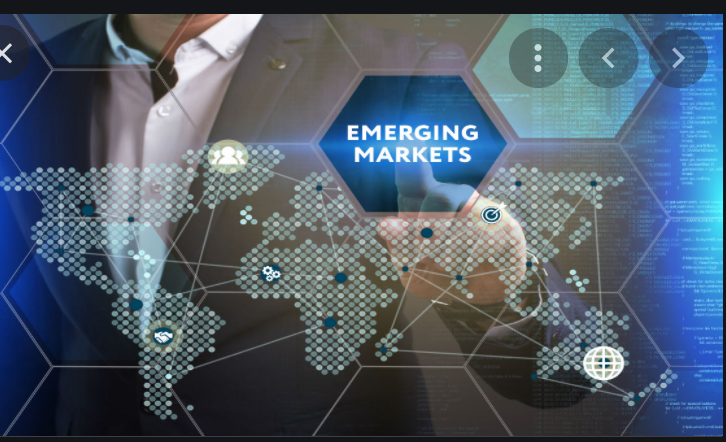Hamzeh Hadad: A golden opportunity: How Iraq can benefit from regional calm
 iraq
iraq
Following the recent thaw in relations between Iran and Saudi Arabia, Iraq is strengthening its ties with GCC states. European countries should support this development, which could help Iraq address its domestic challenges.....
For decades, Iraq has been caught in the crossfire of tensions between neighbouring Iran and Saudi Arabia. But following the recent thaw in relations between Tehran and Riyadh – which Baghdad helped to facilitate – it now stands to be a key beneficiary of regional calm. After a decade of intense polarisation, key regional players are now more focused on economic prosperity than gaining the geopolitical upper hand, which could bring direct and much needed benefits to Iraq.
Against this backdrop, Iraq’s prime minister, Mohammed al-Sudani is strengthening ties with members of the Gulf Cooperation Council (GCC). European countries should actively support these developments, after years of trying to stabilise Iraq following the 2003 invasion.
Arab Gulf states have shown hostility towards Iraq for years, considering Iraq’s Shia politicians, including its premiers, as Iranian proxies. Much to the frustration of Iraqi politicians, many countries – GCC members included – have long viewed their foreign policy towards Iraq as an extension of their Iran file. When Sudani first assumed power in October 2022, GCC capitals considered him as strongly allied to former Iraqi prime minister Nouri al-Maliki and, by extension, Iran.
In reality, the level of Iranian control over Iraqi political structures is complex, varying by institution, issue, and geographic location. However, Iraqis have learnt the hard way that this presumed association with Iran affects GCC states’ foreign policy towards Baghdad. Iraqi politicians have long understood that the country’s relations with the Arab world would only improve if its neighbours de-escalated tensions with Iran. This is why Baghdad seized the opportunity to turn these links into an asset, brokering back-channel talks between Iran and Saudi Arabia over the past years, which culminated in the diplomatic breakthrough that was announced in China earlier this year.
Iraq’s political system, which has been in place for two decades now, has shown its resilience to major crises such as terrorism, secessionist movements, and large-scale protests. The GCC states seem to have finally acknowledged that despite its many challenges, this system is not going anywhere anytime soon. Following Iran’s and Saudi Arabia’s rapprochement, Riyadh is no longer as resistant to increasing the pace of its engagement with the Shia-dominant government in Iraq.
The generational transition of power in Saudi Arabia has replaced leaders with entrenched sectarian beliefs with younger ones with new political ideas and priorities. As Saudi Arabia’s population grows, leaders are concerned with the economic wellbeing of their citizens in a transforming, and less oil reliant, world. Saudi Crown Prince Mohammad bin Salman wants to focus on domestic reform, which regional instability in countries such as Iraq and Yemen could complicate, particularly given the perception that the United States will no longer guarantee the kingdom’s security, as the latter continues to work with Russia.
Leaders are concerned with the economic wellbeing of their citizens in a transforming, and less oil reliant, world
One crucial reason for Baghdad’s persistent outreach to Saudi Arabia is Iraq’s need for Arab investment, including to help wean it off dependence on Iran and Turkey. Trade between Turkey and Iraq now stands at an unprecedented $20 billion. Meanwhile, despite US sanctions, Iraq is Iran’s second biggest trading partner, importing $8.9 billion from Iran in 2022. Iraq would benefit from diversifying its trade partners, especially in the energy sector.
In July, Iraq signed a $27 billion deal with France’s TotalEnergies that will increase domestic oil production and capture gas which is otherwise wastefully burnt, thereby decreasing Iraq’s reliance on Iranian gas. TotalEnergies will benefit from the potential of the Iraqi market, as will QatarEnergy, which has a 25 per cent stake in the deal.
GCC countries are also investing their own money into Iraq. For example, Saudi Arabia and the United Arab Emirates recently allocated $6 billion to be invested in the country. Such investments, whether in retail, hospitality, or energy, are likely to grow as the GCC countries’ relationships with Iraqi politicians develop. For the Iraqi government, this could help address urgent – and often destabilising – economic needs such as providing sufficient jobs and state services to its young population.
Europe should take a new look at Iraq as an investment destination
[embed]https://www.youtube.com/watch?v=COv3c8a1dt4&t=3s[/embed]
This new opening also offers opportunities for Europeans, who should welcome it as an important way to help stabilise the country. European countries should now encourage and support the GCC and Iraq to widen their engagement to other key areas including security and climate cooperation. Rather than seeing this as a means to reduce Tehran’s influence, Europeans should welcome opportunities to draw Iran into cooperative regional frameworks that help cement wider regional de-escalation and address urgent common challenges such as those posed by climate change.
Iraq will need to continue to carefully balance relations with its neighbours, even as Iran and Saudi Arabia warm up to one another. This will not always be an easy task. Both sides will continue to press Baghdad in ways that risk disrupting its balancing act. The presence of paramilitary groups allied with Iran, which often take a more hardline approach than Tehran, as well as the risk of wider regional escalation linked to US and Israeli tensions with Iran, also pose threats to the sustainability of this path. But ultimately, a more regionally connected Iraq will be better positioned to meet its own internal challenges and mitigate the impact of these external pressures. Europeans should do what they can to strengthen this opportunity.
[embed]https://www.youtube.com/watch?v=YGJLtMEzR-s&t=623s[/embed]
The European Council on Foreign Relations does not take collective positions. ECFR publications only represent the views of their individual authors. This is excerpt only, link to full article is here
Follow our English language YouTube videos @ REAL TURKEY: https://www.youtube.com/channel/UCKpFJB4GFiNkhmpVZQ_d9Rg
And content at Twitter: @AtillaEng
Facebook: Real Turkey Channel: https://www.facebook.com/realturkeychannel/





